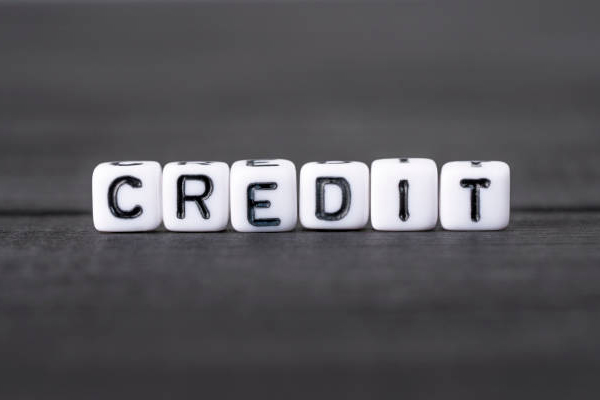Credit Repair Companies: Do They Really Work?
Unlock the secrets of effective credit repair with our comprehensive guide on "Credit Repair Companies: Do They Really Work? " Explore the roles, processes, and potential benefits of credit repair services Discover alternatives, debunk myths, and gain insights into choosing reputable providers Whether considering DIY strategies or seeking professional assistance, empower yourself with the knowledge to make informed decisions and enhance your credit health Navigate the complexities of credit repair with confidence, as we unravel the myths and provide actionable guidance for a brighter financial future
Welcome to the comprehensive guide on Credit Repair Companies: Do They Really Work? This in-depth exploration delves into the world of credit repair services, unraveling the intricacies of their roles, processes, benefits, and potential drawbacks. Navigating the realm of credit repair requires a nuanced understanding of the myths and misconceptions surrounding it, as well as realistic expectations for individuals seeking to enhance their credit health.
In this guide, we dissect the key components of credit repair, outlining the steps involved, the legal and regulatory landscape, and the educational aspects integrated into the process. We also shed light on the pros and cons of using credit repair companies, guiding readers through considerations such as fees, guarantees, and the importance of transparency.
As we explore alternatives to credit repair companies, you'll discover DIY strategies, direct engagement with creditors, independent interactions with credit bureaus, and the valuable option of financial counseling and education. Each alternative is presented as a viable pathway for individuals aiming to improve their credit profiles independently.
The guide further addresses common myths and misconceptions surrounding credit repair, debunking misleading claims and fostering a realistic understanding of what the process can achieve. We emphasize the importance of informed decision-making, encouraging readers to evaluate the credibility and transparency of credit repair services before embarking on this journey.
To provide a well-rounded view, the guide concludes with frequently asked questions (FAQs) about credit repair companies. These FAQs offer insights into the roles of credit repair companies, the duration of the process, potential benefits and drawbacks, alternatives available, and guidance on choosing reputable service providers.
Whether you are considering engaging a credit repair company, exploring DIY approaches, or seeking alternatives, this guide equips you with the knowledge to make informed decisions on your journey toward improved credit health. Let's embark on this exploration together, demystifying credit repair and empowering you to navigate the path that aligns with your financial goals.

The Role of Credit Repair Companies
Understanding Credit Challenges
Exploring the fundamental role of credit repair companies in assisting individuals facing credit challenges. Discussing common issues such as inaccuracies, negative entries, and the impact of financial hardships on credit scores.
Assessment of Credit Reports
Detailing the initial step credit repair companies take in assessing credit reports. Highlighting the importance of a thorough examination to identify errors, discrepancies, and areas for improvement.
Identification and Dispute of Inaccuracies
Discussing how credit repair companies identify inaccuracies on credit reports and initiate disputes with credit bureaus. Providing insights into the strategies employed to challenge and rectify erroneous information.
Negotiation with Creditors
Delving into the role of credit repair companies in negotiating with creditors on behalf of their clients. Exploring how these negotiations aim to settle debts, establish payment plans, and potentially remove negative entries in exchange for resolution.
Development of Personalized Credit Improvement Plans
Highlighting the proactive role of credit repair companies in developing personalized plans to improve clients' credit profiles. Discussing strategies such as debt management, financial education, and ongoing monitoring for sustained improvement.
Ongoing Communication with Credit Bureaus
Explaining the necessity of ongoing communication between credit repair companies and credit bureaus. Addressing the dynamic nature of credit repair, where constant updates, follow-ups, and additional disputes may be required for optimal results.
Legal and Regulatory Compliance
Addressing the importance of credit repair companies operating within the bounds of legal and regulatory frameworks. Discussing the guidelines set by laws such as the Credit Repair Organizations Act (CROA) to ensure ethical and transparent practices.
Empowering Clients with Financial Knowledge
Emphasizing the educational aspect of credit repair companies in empowering clients with financial knowledge. Discussing how informed consumers are better equipped to make sound financial decisions and maintain improved credit health independently.
Monitoring and Adjusting Strategies
Exploring how credit repair companies continuously monitor clients' credit profiles and adjust strategies as needed. Acknowledging that credit repair is an evolving process requiring adaptability to changing financial circumstances.
Collaboration for Long-Term Financial Health
Highlighting the collaborative effort between credit repair companies and clients to achieve long-term financial health. Discussing the role of credit education, responsible financial habits, and ongoing support in sustaining positive credit outcomes.
Pros and Cons of Using Credit Repair Companies
Benefits of Credit Repair Services
Exploring the potential advantages individuals may experience when utilizing credit repair services:
- Expertise: Leveraging the expertise of professionals who understand the intricacies of credit reporting and scoring systems.
- Time Savings: Saving time by outsourcing the time-consuming tasks of credit report analysis, dispute resolution, and negotiations to experts.
- Credit Score Improvement: The possibility of seeing improvements in credit scores through systematic error correction and strategic credit management.
- Stress Reduction: Alleviating the stress and frustration associated with navigating the complexities of credit repair independently.
Potential Drawbacks and Risks
Addressing the potential drawbacks and risks associated with relying on credit repair companies:
- High Fees: Acknowledging that some credit repair companies charge high fees for their services, impacting the overall cost-benefit analysis.
- Unrealistic Promises: Highlighting the importance of being cautious of companies making unrealistic promises or guaranteeing specific outcomes.
- Legal and Ethical Concerns: Discussing the ethical considerations and potential legal issues that may arise if credit repair companies engage in deceptive practices.
- Dependency: Recognizing the risk of individuals becoming overly dependent on credit repair services without actively engaging in responsible financial habits.
Individual Case Considerations
Recognizing that the decision to use credit repair services is highly individual. Factors such as the complexity of credit issues, time constraints, and financial considerations vary from person to person.
Customized Strategies for Different Scenarios
Highlighting that credit repair companies often tailor their strategies to the specific needs of clients. Discussing how customized approaches address unique credit challenges, providing a more personalized experience.
Evaluating Credibility and Transparency
Empowering consumers to make informed decisions by evaluating the credibility and transparency of credit repair companies:
- Research: Encouraging individuals to research the reputation, reviews, and testimonials of credit repair companies.
- Transparency: Emphasizing the importance of choosing companies that are transparent about their processes, fees, and potential outcomes.
- Licensing and Compliance: Advising consumers to verify the licensing and regulatory compliance of credit repair companies to ensure legitimacy.
Realistic Expectations
Setting realistic expectations for individuals considering credit repair services:
- Timeframe: Communicating that credit repair is a gradual process, and significant improvements may take time.
- Limitations: Emphasizing that credit repair companies cannot guarantee specific score increases or outcomes, as individual credit profiles vary.
- Continuous Effort: Reinforcing the idea that sustained credit health requires ongoing effort, responsible financial habits, and collaboration between clients and credit repair professionals.
How Credit Repair Companies Work
Process of Credit Repair
Providing a detailed breakdown of the step-by-step process involved in credit repair:
- Credit Report Analysis: The initial step involves a thorough analysis of the client's credit reports to identify inaccuracies, discrepancies, and negative entries.
- Identification of Errors: Credit repair professionals identify errors such as incorrect personal information, outdated accounts, or inaccurately reported late payments.
- Dispute Initiation: Credit repair companies initiate disputes with credit bureaus to challenge and rectify the identified errors. This involves submitting dispute letters along with supporting documentation.
- Negotiation with Creditors: If applicable, credit repair companies engage in negotiations with creditors to settle debts, establish payment plans, or explore options for removing negative entries in exchange for resolution.
- Development of Actionable Plans: Based on the analysis and initial results, credit repair professionals develop personalized plans outlining actionable steps to improve the client's credit profile.
- Ongoing Communication: Constant communication with credit bureaus, creditors, and clients is maintained to monitor progress, address updates, and adjust strategies as needed.
Legal and Regulatory Aspects
Addressing the legal and regulatory framework that governs credit repair companies:
- Credit Repair Organizations Act (CROA): Discussing the key provisions of CROA, which regulates credit repair services and ensures transparency, honesty, and adherence to ethical practices.
- Consumer Rights: Informing clients about their rights under consumer protection laws and emphasizing the importance of credit repair companies operating within these legal boundaries.
- Compliance Requirements: Detailing the compliance requirements credit repair companies must adhere to, including licensing and reporting obligations.
Educational Components
Emphasizing the educational aspects integrated into the credit repair process:
- Financial Literacy: Credit repair companies often provide educational resources to enhance clients' financial literacy, empowering them to make informed decisions and maintain improved credit health independently.
- Understanding Credit Scores: Educating clients on the factors influencing credit scores, how credit scoring works, and the impact of different financial behaviors on creditworthiness.
- Long-Term Strategies: Offering guidance on developing and maintaining long-term financial strategies, including budgeting, debt management, and responsible credit use.
Customization for Individual Cases
Highlighting the customization of credit repair strategies to address individual cases:
- Personalized Approach: Tailoring strategies to the unique credit challenges of each client, recognizing that one-size-fits-all solutions may not be effective.
- Varied Credit Profiles: Acknowledging that individuals have diverse credit profiles, and strategies are adapted based on the specific issues and goals of each client.
- Continuous Assessment: Stressing the importance of continuous assessment and adjustment of strategies as credit profiles evolve and improve.
Monitoring and Adjusting Strategies
Exploring the ongoing monitoring and adjustment processes within credit repair:
- Regular Progress Checks: Credit repair companies regularly assess the progress of their strategies, evaluating the resolution of disputes, changes in credit reports, and improvements in credit scores.
- Adaptability: Demonstrating the adaptability of credit repair strategies to address new developments, challenges, or opportunities that may arise during the process.
- Client Involvement: Encouraging active involvement and communication from clients to ensure their experiences and feedback contribute to the dynamic nature of the credit repair process.
Common Myths and Misconceptions
Debunking Misleading Claims
Addressing prevalent myths and misleading claims associated with credit repair companies:
- Myth: Instant Credit Score Improvement
Clarifying the misconception that credit repair leads to instant credit score improvement. Emphasizing that the process takes time, and improvements are gradual.
- Myth: Guaranteed Results
Debunking the notion of guaranteed results. Explaining that credit repair companies cannot ensure specific outcomes due to the individualized nature of credit profiles and the involvement of third-party entities.
- Myth: All Negative Entries Can Be Removed
Addressing the misconception that all negative entries can be removed from a credit report. Explaining that accurate negative information, such as late payments, may stay on the report for a specific period.
- Myth: DIY Credit Repair Is Ineffective
Challenging the belief that DIY credit repair is ineffective. Acknowledging that individuals can take effective steps independently, such as disputing inaccuracies and adopting responsible financial habits.
Realistic Expectations from Credit Repair
Setting realistic expectations and dispelling unrealistic beliefs about credit repair:
- Expectation: Drastic Overnight Changes
Managing the expectation that credit repair leads to drastic overnight changes. Stressing the gradual nature of the process and the need for consistent effort over time.
- Expectation: Complete Removal of Negative Entries
Clarifying that while credit repair can address inaccuracies, complete removal of accurate negative entries may not be guaranteed, and their impact diminishes over time.
- Expectation: Unwavering Credit Score Increase
Explaining that credit scores may fluctuate due to various factors, and unwavering credit score increases are not guaranteed. The extent of improvement depends on individual circumstances.
- Expectation: Immediate Qualification for Credit
Dismissing the notion that engaging in credit repair immediately qualifies individuals for new credit. Highlighting that creditworthiness is a holistic assessment involving multiple factors.
Educating Consumers on Credit Repair Processes
Empowering consumers with accurate information about credit repair:
- Misconception: Credit Repair Is Unethical
Addressing the misconception that credit repair is inherently unethical. Explaining the legal and ethical framework within which reputable credit repair companies operate.
- Misconception: Credit Repair Is a Scam
Dispelling the notion that all credit repair services are scams. Encouraging consumers to research and choose reputable companies with transparent practices.
- Misconception: DIY Is Always Superior
Challenging the belief that DIY credit repair is always superior. Acknowledging that professional expertise can be valuable, especially for complex credit issues.
- Misconception: Credit Repair Guarantees Loan Approval
Correcting the misunderstanding that engaging in credit repair guarantees loan approval. Emphasizing that credit repair enhances creditworthiness but does not guarantee specific credit decisions.
Guidance on Selecting Reputable Services
Providing guidance on selecting reputable credit repair services:
- Researching Company Reviews
Advising individuals to research reviews, testimonials, and ratings of credit repair companies to gauge their reputation and effectiveness.
- Checking Regulatory Compliance
Emphasizing the importance of choosing companies that comply with legal and regulatory standards, including licensing and adherence to the Credit Repair Organizations Act (CROA).
- Transparency in Services and Fees
Encouraging consumers to opt for companies that are transparent about their services, fees, and potential outcomes. Highlighting the significance of clear communication throughout the credit repair process.
Alternatives to Credit Repair Companies
DIY Credit Repair Strategies
Empowering individuals with effective do-it-yourself strategies for credit repair:
- Credit Report Review: Guidance on how individuals can thoroughly review their credit reports to identify inaccuracies, discrepancies, and negative entries.
- Dispute Resolution: Providing step-by-step instructions on initiating disputes with credit bureaus and creditors, including crafting effective dispute letters and submitting supporting documentation.
- Establishing Good Financial Habits: Encouraging the adoption of responsible financial habits, such as timely bill payments, debt reduction, and budgeting, to positively impact credit scores.
- Regular Monitoring: Emphasizing the importance of regularly monitoring credit reports to stay informed about changes and address any issues promptly.
Working Directly with Creditors
Exploring the option of direct communication with creditors to address credit issues:
- Negotiating Payment Plans: Guidance on negotiating directly with creditors to establish manageable payment plans for outstanding debts and potentially remove negative entries upon resolution.
- Settling Debts: Discussing strategies for negotiating debt settlements with creditors, which can lead to the resolution of outstanding accounts and improvement in credit reports.
- Requesting Goodwill Adjustments: Advising individuals on the possibility of requesting goodwill adjustments from creditors, especially for isolated late payments, by highlighting positive payment history.
- Updating Account Information: Providing information on how to request updates to account information, ensuring accuracy and reflecting positive changes promptly.
Engaging with Credit Bureaus Independently
Encouraging direct interaction with credit bureaus to address credit report concerns:
- Filing Disputes Independently: Guidance on how individuals can independently file disputes with credit bureaus, providing clear explanations and supporting documentation for inaccuracies.
- Freezing Credit Reports: Discussing the option of temporarily freezing credit reports to prevent unauthorized access and protect against identity theft, providing individuals with more control over their credit information.
- Understanding Credit Report Codes: Educating individuals on the various codes and notations used in credit reports, enabling them to interpret and address specific issues effectively.
- Regular Credit Monitoring: Emphasizing the importance of regularly monitoring credit reports independently to stay informed about changes and potential inaccuracies.
Financial Counseling and Education
Highlighting the benefits of seeking financial counseling and education as alternatives to credit repair services:
- Budgeting Assistance: Connecting individuals with resources for creating and maintaining effective budgets, helping them manage their finances responsibly.
- Debt Management Plans: Exploring the option of enrolling in debt management plans through reputable credit counseling agencies, providing structured approaches to debt repayment.
- Financial Literacy Programs: Recommending participation in financial literacy programs to enhance overall financial knowledge and decision-making skills.
- Resource Referral: Guiding individuals to relevant financial counseling resources and educational materials, empowering them to make informed financial decisions.
FAQs about Credit Repair Companies
Q1: What is the role of a credit repair company, and how does it work?
A1: Credit repair companies play a crucial role in assisting individuals with credit challenges. They analyze credit reports, identify inaccuracies, initiate disputes with credit bureaus, negotiate with creditors, and develop personalized plans for credit improvement. The process involves ongoing communication, adherence to legal frameworks like the Credit Repair Organizations Act (CROA), and an educational component to empower clients with financial knowledge.
Q2: Can credit repair companies guarantee specific results, and how long does the process take?
A2: Credit repair companies cannot guarantee specific outcomes due to the individualized nature of credit profiles and external factors. The process duration varies based on the complexity of issues, but clients can generally expect gradual improvements. Factors such as the extent of inaccuracies, creditor responsiveness, and ongoing client involvement influence the timeline. Realistic expectations and continuous effort are essential for successful credit repair.
Q3: What are the potential benefits and drawbacks of using credit repair services?
A3: Credit repair services offer benefits such as leveraging professional expertise, saving time, potential credit score improvement, and stress reduction. However, drawbacks include high fees, unrealistic promises, legal and ethical concerns, and the risk of dependency. It's crucial for individuals to carefully evaluate the credibility and transparency of credit repair companies and understand that results may vary based on individual circumstances.
Q4: Are there alternatives to credit repair companies for improving credit?
A4: Yes, individuals have alternatives, including DIY credit repair strategies, direct communication with creditors, engaging with credit bureaus independently, and seeking financial counseling and education. DIY approaches involve reviewing credit reports, disputing inaccuracies, and adopting responsible financial habits. Direct communication with creditors allows negotiation and resolution, while engaging with credit bureaus independently enables filing disputes and monitoring credit reports. Financial counseling provides additional guidance for responsible financial management.
Q5: How can individuals choose a reputable credit repair company, and what should they look for?
A5: Choosing a reputable credit repair company involves thorough research. Consider reading reviews, testimonials, and ratings. Ensure the company complies with legal standards, holds relevant licenses, and follows the Credit Repair Organizations Act (CROA). Transparent communication about services and fees is crucial. Ultimately, individuals should choose companies that align with their goals, demonstrate credibility, and provide realistic expectations regarding the credit repair process.










